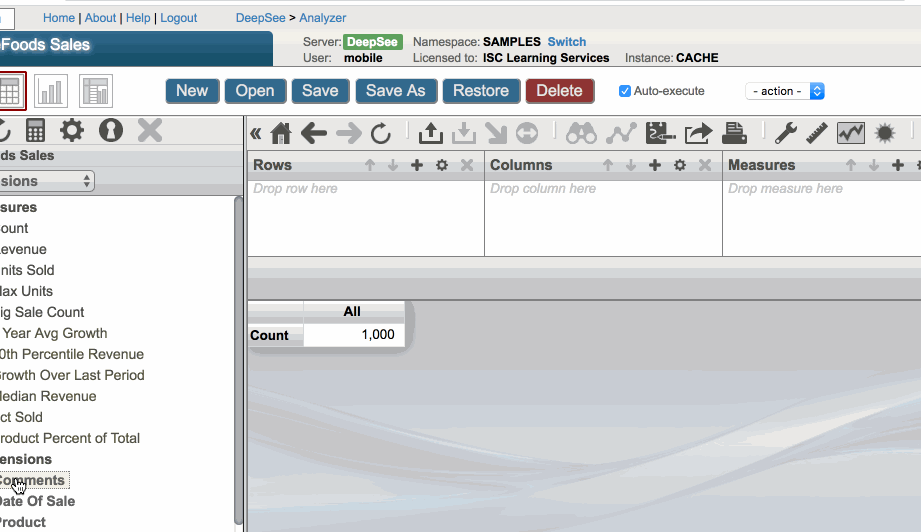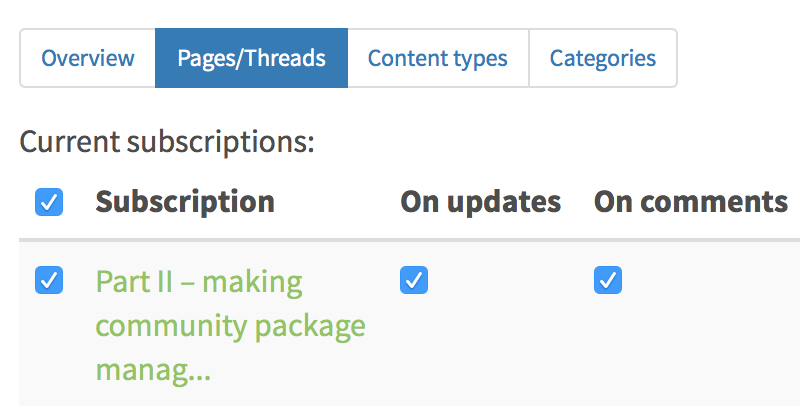We've fixed the link, now it should show your articles stats.
- Log in to post comments
We've fixed the link, now it should show your articles stats.
Hi, Paras!
Here is the related article.
Hi, Stephen!
Thanks for the comment!
We are looking into that.
Thanks, Jon!
I think I've fixed that
Thanks Peter! I gave it a try and it seems that the second block of SETTINGS is not parsed too.
Also, I ran into an issue of 250 characters limit for the URL value.
Hi, Sameera!
It's not an answer, but have you tried this Studio+Git solution?
Thanks Eduard! Fixed and changed )
Hi Derrek!
Please find in the same pivot settings window grand total for rows as well.
Here it is:

Hi, Derrek!
Go to the pivot settings in Analyzer and turn on the Grand Total for the rows, and you'll get it.
And are there any plans to have a 'named filter' control within widgets that would let you change the operand?
It is possible. There was the question regarding this option.
If you need the filter for the measure, make it searchable, as Peter said.
If you want to filter calculated measure, try to change it to classic measure with COS expressions in the measure definition.
Very nice, Eduard!
Consider I want to develop the reporting in Microsoft Word and Excel from my Caché application using templates. Can I use your approach to make it?
It is the bug. Filed, thanks!
Fair enough. Filed, thanks.
Hi, John!
It's a good point, not supported yet. So for now once you point the star you are subscribed to the post at the moment. And vice versa.
What would be the best UI solution in this case in your opinion?
Hi, John!
I think it refers not only the "importing xml" cases but also any installation of any 3rd party tool or solution to your target InterSystems Caché or Ensemble server.
I think the Package Manager can cover some risks in this field.
Another idea relates to docker technology: install the "unknown" but interesting solution into the docker container first and see how it works and where it tries to send the data and etc.
Hi, John!
Why misclassified?
Does anyone have an explanation for this mapping of the Test package to the HSLIB database?
Is it not a question?
Hi, John!
Thanks for the feedback.
Yes, it seems it's a bug and we already fixing it now.
Hi, Alessandro! Thank you! That exactly what I need.
Hi, Mark!
The bug was fixed, subscription tabs should show the real numbers of categories.
Hi, Alexander!
We fixed the bug, you should not see any phantom categories now. Sorry for the inconvenience.
Please confirm that the flow of messages has been stopped.
Thanks!
And yes: Caché creates the index with SQLUPPER collation by default for all the indexes, except idkey ones.
Thanks for the answers!
Actually there was a mistake in example. The original case in my app uses idkey:
Index ValueIndex on UniqueStringValue [Unique, idkey];
Caché uses Exact collation for idkey indexes.
So that's why I had a problem with
.ValueIndexExists(value)
method.
Thank you, Bachhar for the thorough and full answer!
Alexander!
For Categories Overview it tells me I have 2 selected items but under Categories tab I have 0 Tags and The groups section tells me it is restricted and I do not see any tick boxes on the page.
2 for categories it is a bug we are fixing now. Every member has it if there is no any subscription.
Just before your update I received and email entitled "[ISC-DC] Encoding issues ..." which is an issue I am not explicitly trying to watch. When I click on the Purple Unsubscribe at the very bottom of the email.
It seems it's a bug. We'll try to fix it.
Hi, Mark!
That's a bug, which shows +2 categories for every member now.
You can turn off any email notifications from developer community on the Subscription/Overview page:

Point "No" for "Receive notifications" setting.
Hope that helps!
Hi, Alexander!
1. How can I figure out which restricted group categories I am in?
About subscription types on DC:
1. General subscription to all posts, answers, and its comments.
You can setup this on Subscription/Content types page:

2. Subscription to Groups and Tags.
You can subscribe to the Groups and Tags as you mentioned in your question.
All your subscriptions to this stuff can be managed on Subscription/Categories page:

3. Subscription to particular topics.
If you favorited (star) the page, or answered/commented it, you are automatically subscribed to the page.
To alter the list of this subscriptions open Subscription/Page/Threads page:

2. How do you actually unsubscribe from those categories.
You can do that in the settings, as listed above.
Also with the latest DC release, we improved the notifications, so once you get the notification now, there is the related unsubscribe button which leads to a right place to unsubscribe from these type of notifications.
Hi, Gery!
Can you start a new question with this topic?
Now it is placed as an answer to your previous question, which is not an answer obviously, but the new question on a different problem.
Thanks!
There is no option at the moment but we'll introduce it soon.